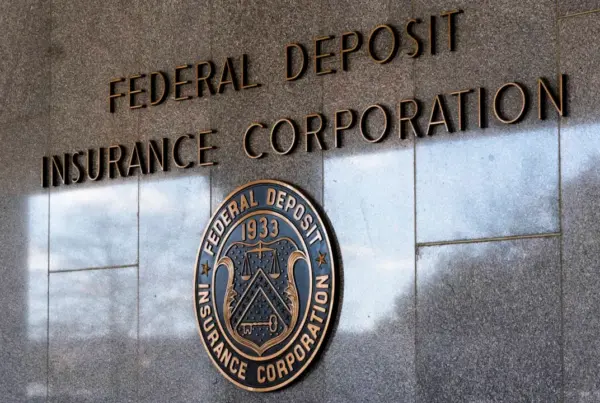Introduction
On July 30, 2024, the Federal Deposit Insurance Corporation (FDIC) unveiled a proposed rule aimed at reshaping the regulatory landscape for brokered deposits. This significant regulatory action seeks to clarify the definition of deposit brokers and impose stricter requirements on financial institutions engaging with these entities. The proposal is a response to ongoing concerns regarding the stability of the banking system, particularly in light of recent economic disruptions and the evolving nature of financial services. Historically, the FDIC has taken various measures to regulate brokered deposits, including past amendments to the Federal Deposit Insurance Act (FDIA). The current proposal builds on these efforts, addressing the increasing complexity of financial transactions and the need for enhanced consumer protection. The primary concern driving this regulatory update is the potential risk posed by brokered deposits to the safety and soundness of insured depository institutions.
Key Regulatory Changes & Analysis
1. Expansion of the Definition of Deposit Broker
The proposed rule expands the definition of a deposit broker to include more entities that facilitate the placement of deposits with banks. Previously, the definition was somewhat narrow, primarily targeting traditional brokers. The new definition encompasses:
- Fintech companies that aggregate deposits for consumers.
- Online platforms that facilitate deposit placements.
This change is significant as it broadens the scope of entities subject to regulation under Section 29 of the FDIA.
2. Enhanced Reporting Requirements
The FDIC proposes new reporting obligations for banks that accept brokered deposits. Key aspects include:
- Mandatory disclosures regarding the nature and source of brokered deposits.
- Regular reporting to the FDIC on the volume and characteristics of these deposits.
These requirements aim to improve transparency and enable the FDIC to monitor risks associated with brokered deposits more effectively.
3. Restrictions on Interest Rates
Under the proposed rule, banks may face restrictions on the interest rates they can offer on brokered deposits. This measure is designed to mitigate the risk of banks engaging in unsustainable competition for deposits, which could jeopardize their financial stability.
4. Clarification of Exceptions
The proposal clarifies existing exceptions to the definition of deposit brokers, particularly concerning certain types of deposits that do not require broker designation. This includes:
- Deposits from affiliates.
- Deposits placed by government entities.
These clarifications are intended to reduce compliance burdens for certain institutions while maintaining protections for the banking system.
Legal and Industry Implications
The proposed rule presents several legal and operational implications for affected financial institutions:
- Compliance Burdens: Institutions may incur significant costs related to compliance with new reporting and operational requirements.
- Operational Adjustments: Banks will need to reassess their deposit strategies and potentially restructure their offerings to align with the new regulations.
- Regulatory Risks: Failure to comply with the proposed requirements may lead to enforcement actions by the FDIC, including fines or restrictions on operations.
Recent litigation surrounding brokered deposits underscores the contentious nature of these regulations, with potential legal challenges anticipated from industry stakeholders.
Recommended Actions & Compliance Strategies
Affected financial institutions should consider the following actions to ensure compliance with the proposed rule:
- Review Internal Policies: Assess and update internal policies regarding the acceptance of brokered deposits.
- Enhance Reporting Procedures: Implement systems to ensure accurate and timely reporting of brokered deposits to the FDIC.
- Engage in Public Comment: Institutions are encouraged to participate in the public comment period to voice concerns or suggestions regarding the proposed rule. Comments can be submitted through the FDIC’s official channels before the deadline.
Conclusion & Next Steps
The FDIC’s proposed rule on brokered deposits represents a significant shift in the regulatory framework governing financial institutions. Key takeaways include the expanded definition of deposit brokers, enhanced reporting requirements, and potential restrictions on interest rates. The timeline for implementation will depend on the finalization of the rule, which is expected to occur following the public comment period. Stakeholders should remain vigilant for further regulatory developments, as the proposal may face scrutiny and potential challenges that could impact its enforcement. Financial institutions are advised to proactively adjust their compliance strategies in anticipation of these changes to mitigate risks and ensure adherence to the evolving regulatory landscape.


